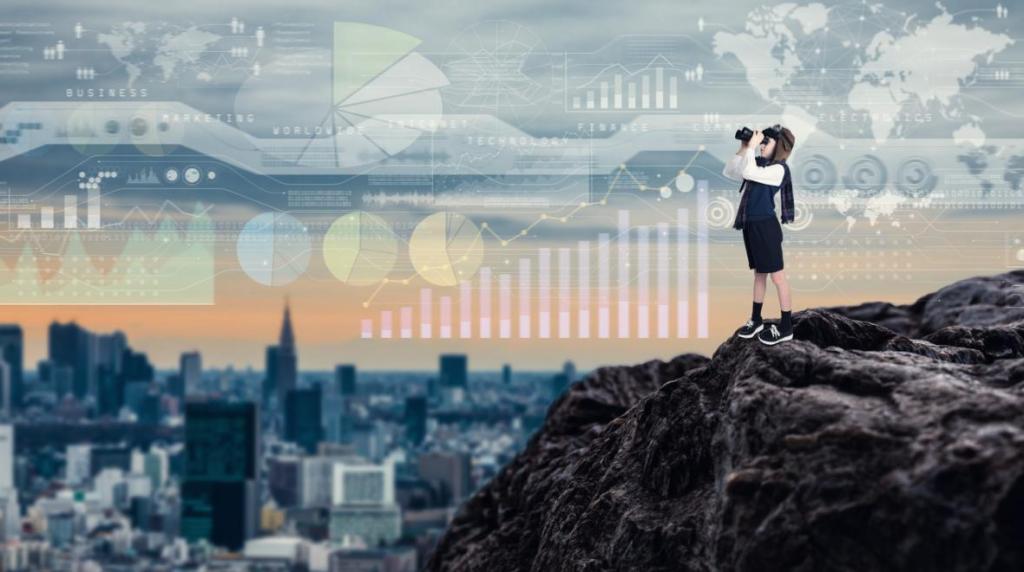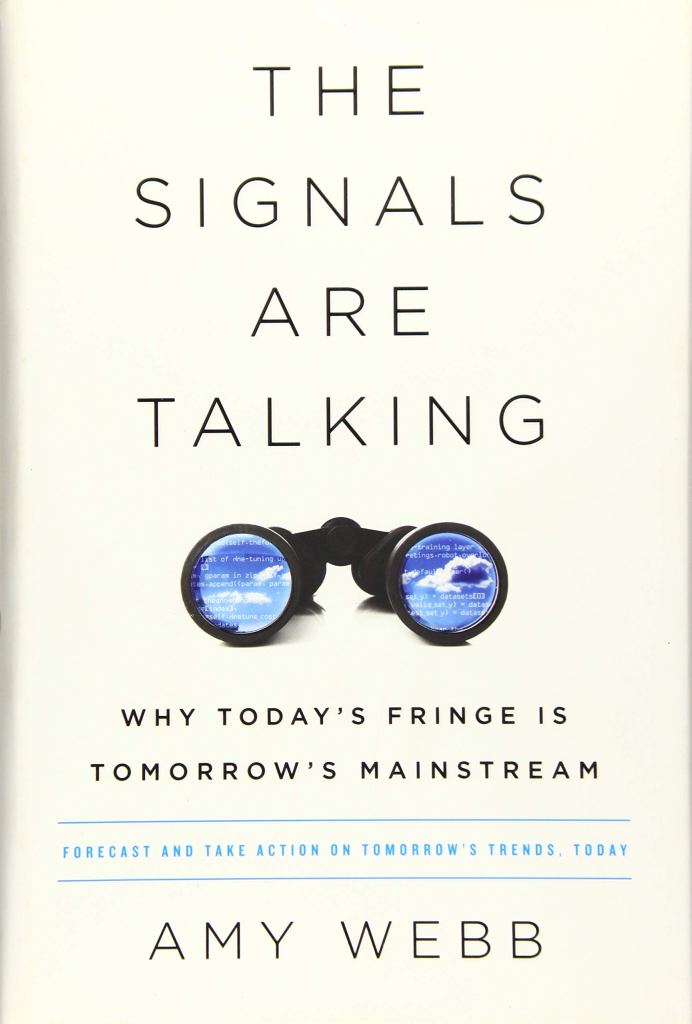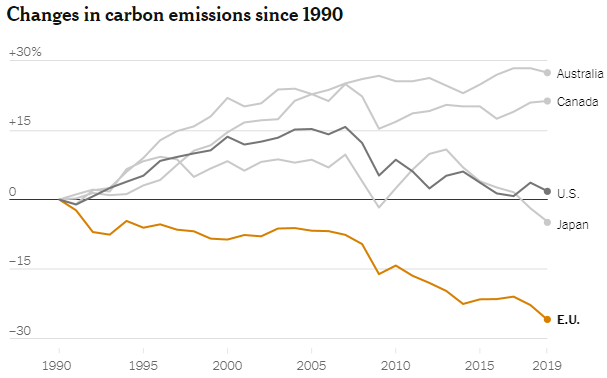
What a whirlwind of change in the past few years. From a white hot economy to shutting down the entire world within a few weeks, which was followed by everyone except essential workers learning to work at home while their children and teachers also grappled with remote learning and living. But this was just the tip of the iceberg with respect to global change. Below are recent quotes highlighting other significant changes that are now impacting the world.
The last 24 months have changed everything. For businesses. For leaders. For employees. Now, as the dust settles, one fact becomes clear: Power has shifted. From organizations to people. From profit to mutual prosperity. From “me” to “we”.
The future will continue to be full of opportunities and challenges. Climate change. Digital disruption. Global shortages and supply chain issues. And don’t forget the fickle customer. If you are not obsessing about their needs, you’re doomed to fail. Business models will change. We’ll explore more flexible production methods tailored to our customers’ needs. We’ll put people at the heart of everything we do but empower their productivity with technology. And we’ll reconnect to each other and the purpose of the organization.
https://www.kornferry.com/insights/featured-topics/future-of-work/2022-future-of-work-trends
“This is among — if not the most — complex, dynamic environments I’ve ever seen in my career,” Goldman President John Waldron said at an investor conference Thursday. “The confluence of the number of shocks to the system to me is unprecedented.”
https://www.bloomberg.com/news/articles/2022-06-02/goldman-s-waldron-warns-of-unprecedented-shocks-in-echoing-dimon
The ripple effects of Russia’s war in Ukraine are changing the world. Far from Russia’s war in Ukraine, stores are running out of cooking oil, people are paying more at the gas pump, farmers are scrambling to buy fertilizer and nations are rethinking alliances. Russia’s invasion of Ukraine has triggered seismic repercussions: a fast-moving refugee crisis, unprecedented sanctions against a major economy and a shakeup of global relationships, including a reinvigorated NATO.
https://www.npr.org/2022/05/10/1093066817/ukraine-war-gas-prices-refugees
Disruptive innovations are creating new industries and business models, and destroying old ones. New technologies, data analytics and social networks are having a huge impact on how people communicate, collaborate and work. As generations collide, workforces become more diverse and people work longer; traditional career models may soon be a thing of the past. Many of the roles and job titles of tomorrow will be ones we’ve not even thought of yet.
https://www.pwc.com/ee/et/publications/pub/future-of-work-report.pdf
The Future of Leadership Global Executive Study and Research Report finds that leaders may be holding on to behaviors that might have worked once but now stymie the talents of their employees. Organizations must empower leaders to change their ways of working to succeed in a new digital economy.
https://sloanreview.mit.edu/projects/the-new-leadership-playbook-for-the-digital-age/
Every day we add 227,000 more people to the planet — and the UN predicts human population will surpass 11 billion by the end of the century. As the world’s population grows, so do its demands for water, land, trees and fossil fuels — all of which come at a steep price for already endangered plants and animals.
https://www.biologicaldiversity.org/programs/population_and_sustainability/population/#:~:text=Every%20day%20we%20add%20227%2C000,already%20endangered%20plants%20and%20animals.
A warming planet creates a wide range of risks for businesses, from disrupted supply chains to rising insurance costs to labor challenges. Climate change and extreme weather events such as hurricanes, floods and fires, for example, have a direct impact on 70% of all economic sectors worldwide.
https://www.forbes.com/sites/deloitte/2021/04/16/organizations-are-feeling-the-pain-of-climate-change-here-are-five-ways-its-affecting-their-business/?sh=518505244e0c
And the above focus just on the headlines. Now add politics, social unrest, protests, diversity-equity-inclusion, relationships, crime, protests, transportation, global health considerations, science, religion, and more, and you can feel the magnitude of what lies ahead. No, this is not another doomsayer article. It is about facing what lies ahead and in a way that will serve to help humanity, not crush it. What may appear as a doom and gloom perspective, is actually a story about hope and the evolution of humanity. It is about taking a step back from the overwhelmingly negative events, headlines, and news, and considering the idea that these times are simply another juncture in humanity’s 300 thousand year timeline (compared to Earth’s 4.5 billion year existence).
Most of us are consumed by our day-to-day tasks as a parent, spouse and employee to take time to postulate our future, much less the future of humanity. This is understandable, particularly as we learn to juggle the growing demands of each of the hats we wear. We therefore leave these challenges in large part to the politicians who unfortunately are too consumed with their own short term agendas rather than confronting the longer term issues. Leave these to the next incumbant is the general rule. The recent movie, “Don’t Look Up”, with Merryl Streep in a role as the U.S. President, portray well the lack of emphasis politicians have on real and urgent issues. My concern is that the collective of these issues, all occurring in parallel, show the possibility of creating greater levels of chaos and disruption, leading to greater levels of global economic and impact to individuals and all of humanity. Issues such as world population and global warming each have the strong potential for adverse impact as noted in the quotes above. Therefore, my hope is that our politicans, company leaders, and other thought leaders and influencers, along with each of us adding our own small changes, make the time to understand and prioritize collective and global action.
This would suggest that we would first need a way to more accurately predict and assess the future. How can we do this?
Do we listen to the headlines, the mainstream media, or instead look out to the “fringe”? I was fortunate to have worked closely with a futurist, Joel Barker. I was working with Eastman Kodak in Rochester, N.Y., which was then a major company with over 56,000 employees in Rochester alone. We were experiencing greater competition from Fuji, Agfa and others who were slowly eroding our monopoly with silver halide film. Joel was invited in to meet with our executives and management. He used excerpts from the movie, “Tora! Tora! Tora!” to explain how strongly held paradigms, current set of beliefs, can limit our ability to see change. The excerpts referred to several occassions where we did see the Japanese planes enroute to Hawaii, but dismissed each of these occurrances due to the paradigm that we would never be attacked on our own soil. He also stated that it is by looking out to the “fringe” that we can better understand what will likely be the future. He shared several examples of this relating to how to identify and understand what is happening in the fringe. The purpose for these conversations was to educate our leaders to consider the future and to challenge our currently held paradigms.
As I conducted my tour of duty across our U.S. sites, as an manager and facilitator, I visited our customers and observed how our products were being used, along with soliciting their views and opinions. It was here that the word “digital” began to be used in reference to replacing what was mainstream at that point, traditional silver halide film. As I participated in conversations regarding these new developments, it became clear that our company’s paradigm was that nothing would ever replace silver halide film, and that our expertise in this technology would keep us as the top contender in this industry. Well the rest is history and another example of how significantly we allowed our paradigms to blind us from the future, which included the end of silver halide with the growth and acceptance of digital imagery.
The work of Amy Webb on futurism is excellent and also refers to “fringe” as the means of assessing what is likely to be. The following quote and video provide more detail.
In How Did We Miss That?: How to Forecast the Next Big Thing, Amy Webb shows you how to avoid having to ask that frightening question. Successful business leaders seem to have a sixth sense about what’s next; an uncanny ability to predict the next big trend or market development. But it’s not magic. Webb teaches you how to spot today the signs of tomorrow’s trends; specifically, the trends affecting your world—your market, your products, and your competitors. She demonstrates how the future doesn’t arrive fully formed, but rather emerges step-by-step, appearing first around the fringes of society. But that future is easy to miss unless you know where and how to look.
https://www.goodreads.com/en/book/show/29502380-the-signals-are-talking
My hope is that corporations will begin to take the lead in assessing the future, identifying priorities, and collectively providing the money and resources needed. Yes, this will challenge our quarter by quarter focus on maximizing profits for sake of maximizing humanity’s chance of survival and providing better resources to every individual. I recently watched on older episode of Star Trek where they spoke about the evolution of humanity on Earth. They stated that is was around 2050 when crisis and chaos threatened the existence of humanity. The approach was to band together and create methods that were equally available to everyone, and change the course of humanity. Although this is fiction, it does describe, as episodes of Star Trek do very well in my opinion, a likely scenario and wonderful response.
Back to the comment on hope and the evolution of humanity, leaving this conversation on a positive note. The answer comes in part from my own search within the fringe. There are many examples of individuals and non-profits who are dealing with a multitude of issues across the globe. Simply Google, “individual examples of dealing with global warming”. One result was from the University of California (UC Davis).
For those of you resolving to do your part to reduce your emissions and engage more sustainably with the planet and those living here, we offer 18 simple, low-budget things that add up. Consider them “re-solutions:”
https://www.ucdavis.edu/climate/what-can-i-do/18-simple-things-you-can-do-about-climate-change
I also went to the blogs to view the conversation on the topic of “hope for humanity.” Although the majority of commentary focused on their views of the causes for our world’s problems, there were those who were the optimists.
Do you believe there can be any hope in the future for yourself or humanity?
Succinctly: “Absolutely.” While I’m painfully aware of the many problems in the world, and while I do believe that humanity, as a whole, is on a very bad trajectory toward self-destruction, I’m also a huge believer in the power of personal change. With help, and a lot of work, I pulled myself out of the idiocy of my childhood, and have been on the road to being the man I really want to be ever since. It’s a long (and sometimes) painful process, but I’m no one special, nor have I done anything to change and improve that anyone else couldn’t do. Because of that, I believe there is a chance, both for myself and for humanity as a whole, to choose a better path, and avoid the eventual (and likely unpleasant) consequences of our current course…The changes will be very difficult, at first, but worth it in the long run. All the best.
Another site spoke of the progress being made in Western Europe with carbon emissions (see image). They state, “Western Europe has done more to reduce its greenhouse gas emissions over the past three decades than any other region in the world. It has vastly expanded solar and wind power. It has introduced carbon taxes and other policies to increase the cost of dirty energy. In all, the European Union has cut its greenhouse gas emissions by about 30 percent since 1990, much more than the U.S., Canada, Japan, Australia or other affluent countries. (same source as image).
What is the value of assessing the future?
One great example is for our own career. Understanding the likely shifts in employment and the workplace allows you to better prepare for, and to develop the needed competencies, to remain relevant in your work and how it is applied. My own personal interest has been on the topic of The Future of Work. The initial quote shared at the beginning of this post is consistent with a number of articles from mainstream companies, along with the fringe blogs and posts, that how we staff companies will be very different in the coming years.
Another example relates to companies. What we do know is that the nature of business is in a constant flux as a result of the large number of major factors impacting what we do and how we do it. The work environment today has been described as “permanent white water” suggesting that the success of companies will be dependant on how well they assess and predict the future, both short and long term.
I leave you with a quote:
“Most of the important things in the world have been accomplished by people who have kept on trying when there seemed to be no hope at all.” – Dale Carnegie
About Michael
Michael is an award winning author, speaker, facilitator and coach on the topics of Career Coaching, Leadership, Personal Growth & Self-Discovery. Check out “Discovering Michael: An Inspirational Guide to Personal Growth & Self-Discovery” You can also view my latest development book on Leadership, “Leadership From The Inside Out: Building Your Leadership Foundation” which utilizes the concepts covered in this Framework to develop great leaders. Visit my website for more information growhumanpotential.com including links to my YouTube Channel, “The Ripple Effect”, Podcasts and more. You can contact Michael at growhumanpotential@gmail.com

